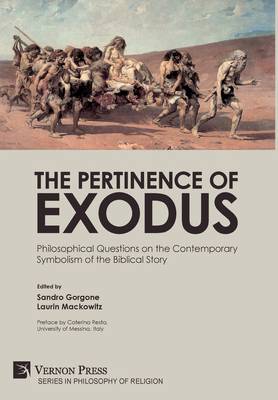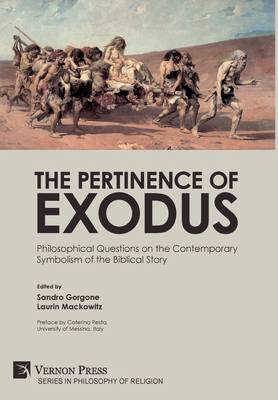
- Retrait gratuit dans votre magasin Club
- 7.000.000 titres dans notre catalogue
- Payer en toute sécurité
- Toujours un magasin près de chez vous
- Retrait gratuit dans votre magasin Club
- 7.000.0000 titres dans notre catalogue
- Payer en toute sécurité
- Toujours un magasin près de chez vous
The Pertinence of Exodus
Philosophical Questions on the Contemporary Symbolism of the Biblical Story
Description
The Exodus has a risky and combative character that links individuals to their unconscious, to the uncertainty of their reality, and to the possibility of the disturbing event of the incalculable arrival of the Other. This encounter with the unknown does not expect a messianic salvation but a human solution, which is aware that change requires the abandonment of self-referential identities. This eccentricity is more than evasive desertion or escapism, but an experiment with new modes of organizing community that grows on the responsibilities that go with it.
This collected volume gathers contemporary philosophical perspectives on the Exodus, examining the story's symbolic potentials and dynamics in the light of current social political events. The imagination of the Promised Land, the figure of the migrant, the provisional and precarious dwelling of the camp, the promise of a better future or the gradual estrangement from inherited habits are all challenges of our time that are already conceptualized in the Exodus. The authors reaffirm the pertinence of the story by addressing the fundamental link between the ancient narrative and the human condition of the 21st century.
Spécifications
Parties prenantes
- Editeur:
Contenu
- Nombre de pages :
- 216
- Langue:
- Anglais
- Collection :
Caractéristiques
- EAN:
- 9781622737710
- Date de parution :
- 27-08-19
- Format:
- Livre relié
- Format numérique:
- Genaaid
- Dimensions :
- 152 mm x 229 mm
- Poids :
- 444 g

Les avis
Nous publions uniquement les avis qui respectent les conditions requises. Consultez nos conditions pour les avis.





